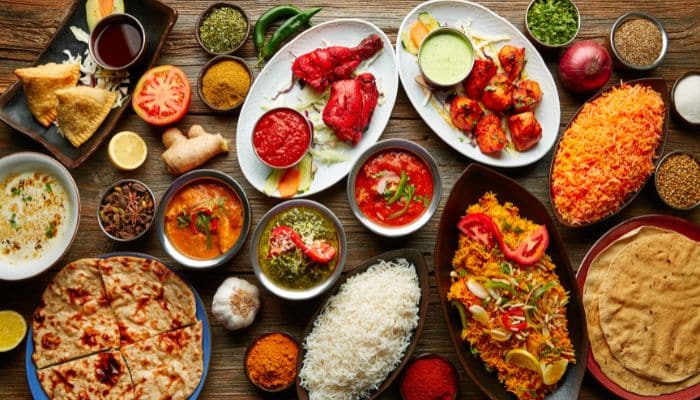A hernia is one of the most uncomfortable conditions in the human body. Those with the displeasure of experiencing a hiatal hernia seek pain relief as quickly as possible. Of course, like all other conditions, diet — particularly the foods to avoid with a hernia — can play a crucial role in easing symptoms and preventing the onset of one altogether.
What Is a Hiatal Hernia?
A hiatal hernia is when the top part of your stomach juts out into the chest, pushing into the hiatus in the diaphragm — what separates the abdominal cavity and the chest. Although a hiatal hernia is usually so small that you might not even be aware of it, larger types are far more uncomfortable and pose significant risks to other organs.
Hernias are much more likely to affect someone older than 50 — about 55% to 60% of this demographic have a hiatal hernia — and are more common in women who’ve undergone pregnancy.
Patients might require surgery to correct the hiatal hernia. Signs of gastroesophageal reflux disease (GERD), obstructions and excessive pressure on the surrounding organs can be life-threatening when left untreated.
Causes and Symptoms
Doctors may order a chest x-ray, barium-swallow scan or endoscopy to look for a hiatal hernia in patients who experience the following symptoms:
- Heartburn
- Difficulty swallowing and breathing
- Chest pain
- GERD
- Abdominal pain
- Bad breath
It’s easier to understand how some hernias occur — for example, male athletes between 26 and 28 years old are more prone to sports hernias due to having narrower pelvises. One abrupt move or wrong twist could prove quite uncomfortable.
However, less is known about what causes a hiatal hernia. Experts assume you could be more susceptible to hiatal hernias when you have obesity. Therefore, losing weight and eating a healthier diet could help.
5 Foods to Avoid With a Hiatal Hernia
Knowing what foods to avoid with a hernia may be easier than deciding what to eat. Many foods may aggravate a hernia and add to your discomfort. For hiatal hernias, avoiding particular foods is essential. Here are five foods you should stay away from when you have a hiatal hernia.
Acidic Foods
Ask anybody with acid reflux what the culprit of their flare-up is and they’ll likely tell you it’s citrus. Although you might enjoy a cup of coffee or a glass of orange juice at breakfast, acidic foods can increase the effects of GERD, ultimately worsening your hiatal hernia.
Other highly-acidic foods you should avoid include tomatoes, lemons and limes, pineapples, blueberries and grapefruit. Acid reflux can last a few minutes or several hours, depending on how bad you have it. Patients will notice the discomfort of stomach acid sitting in their esophagus during a flare-up.
Fried Food
Considering obesity is a possible cause of hiatal hernias, you might want to avoid fried and fatty foods. Finding other ways to cook food —sauteeing, boiling and baking — is better for digestion and may prevent additional weight gain. Swapping out fried food for less-oily alternatives is best for managing symptoms from your hiatal hernia and improving your overall health.
Too Much Fiber
Usually, experts say you must increase your fiber intake — most Americans eat 10 grams less of the recommended fiber for healthy bodies and digestion. However, there’s such a thing as overeating fiber when you have a hernia.
Too much fiber could lead to increased bloating, gas, constipation and cramping — it could also make you gain weight. All these symptoms can make your hernia worse. Find the right amount of daily fiber for your body to improve your condition with a hernia.
Alcohol
Because alcohol is a diuretic, you risk becoming more dehydrated when you consume it — this could lead to indigestion and more discomfort with a hernia. You might find yourself constipated, lightheaded and in more pain after drinking alcohol with a hernia. In severe cases, dehydration and constipation could cause bowel obstruction and intestinal punctures.
Therefore, drinking plenty of water throughout the day is essential to move feces through and out of the body and relieve gas, bloating and pressure. You might also want to eat more water-based foods — such as cucumbers or watermelon — and take stool softeners to help the process.
Spicy Food
The top foods to avoid with a hernia are spicy items. Pepper, chilies, spicy soup, sausages, hot wings and others could cause heartburn and constipation. Spicy foods have a similar effect on a hernia as acid reflux, so eating them may have an acidic reaction that makes you flare up.
Naturally, some heat gives food great flavor, but an alternative to spices could be herbs. Take your meals from spicy to savory with fresh herbs that have a less harmful effect on your stomach.
Diet Can Help or Hurt Hernias
Food choices can either improve your hernia or worsen the effects. For those with obesity, losing weight could be a preventative
Writer Bio

Beth is the Managing Editor and content manager at Body+Mind. She shares knowledge on a variety of topics related to nutrition, healthy living, and anything food-related. In her spare time, Beth enjoys trying out new fitness trends and recipes.




